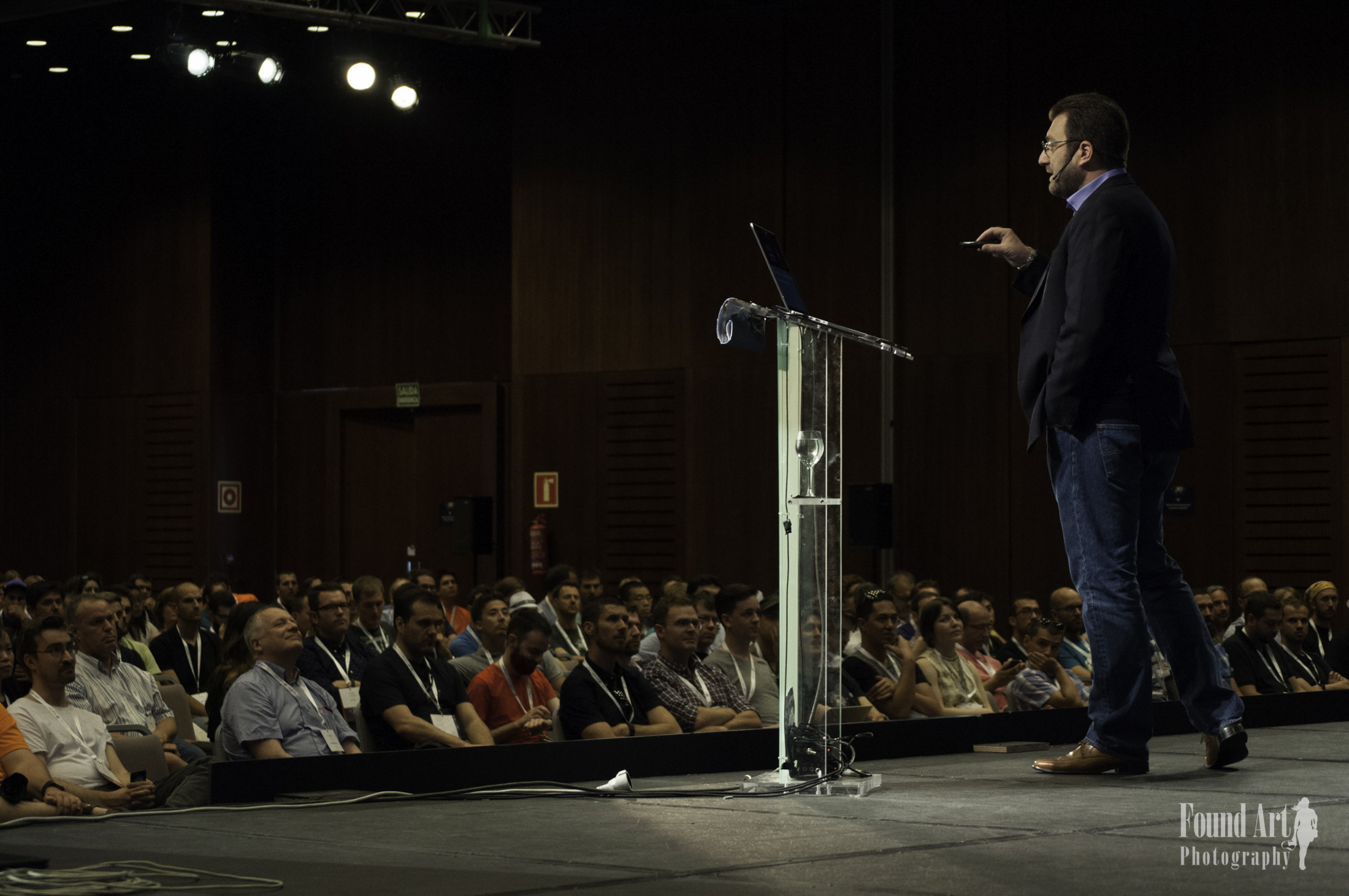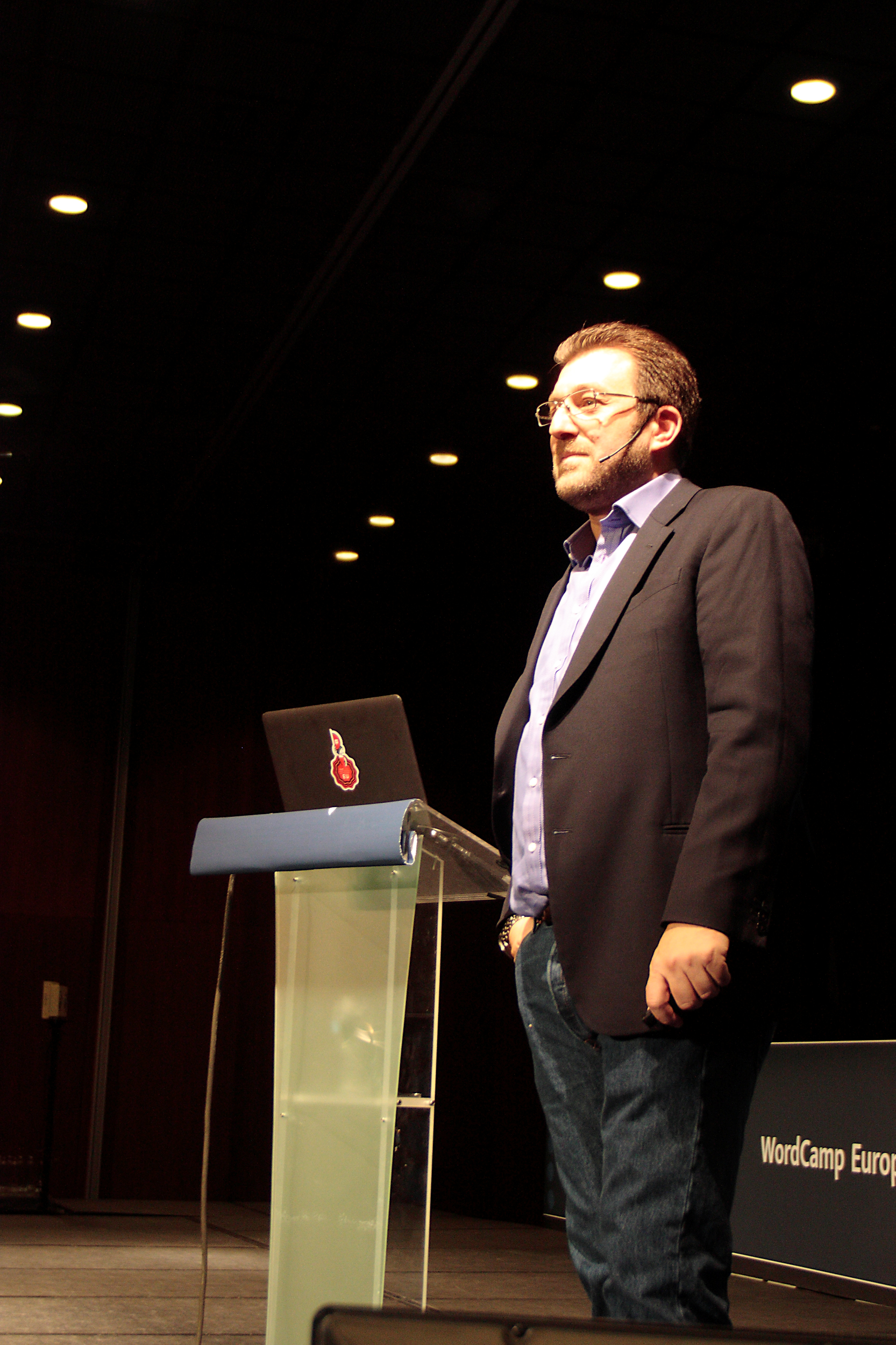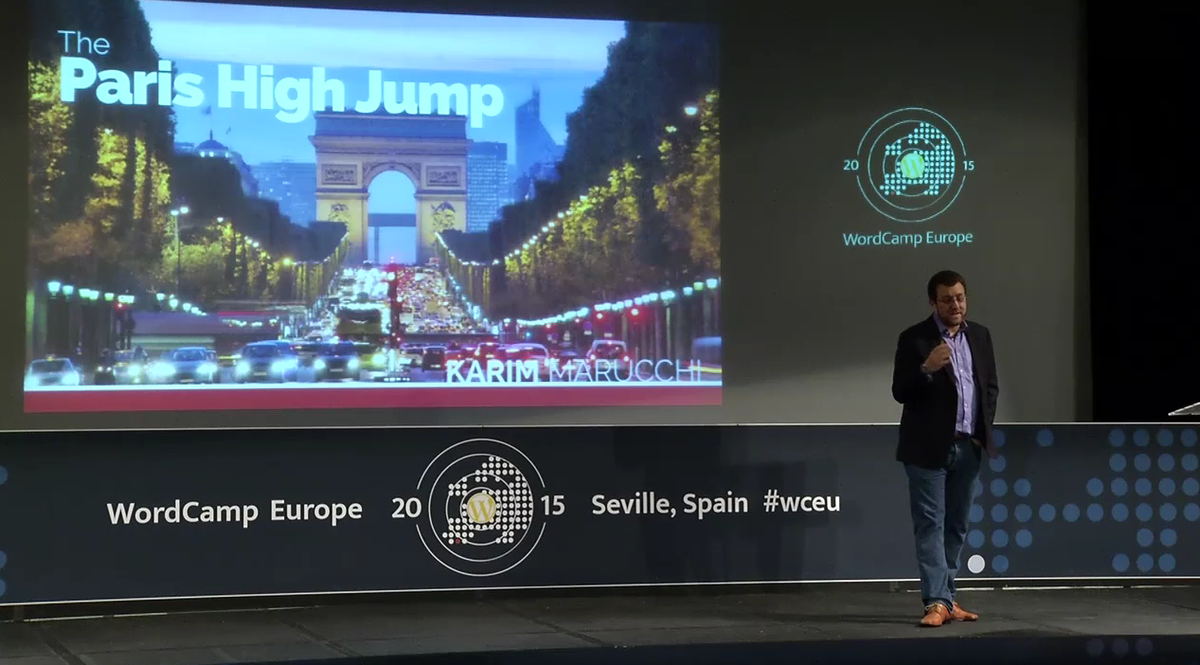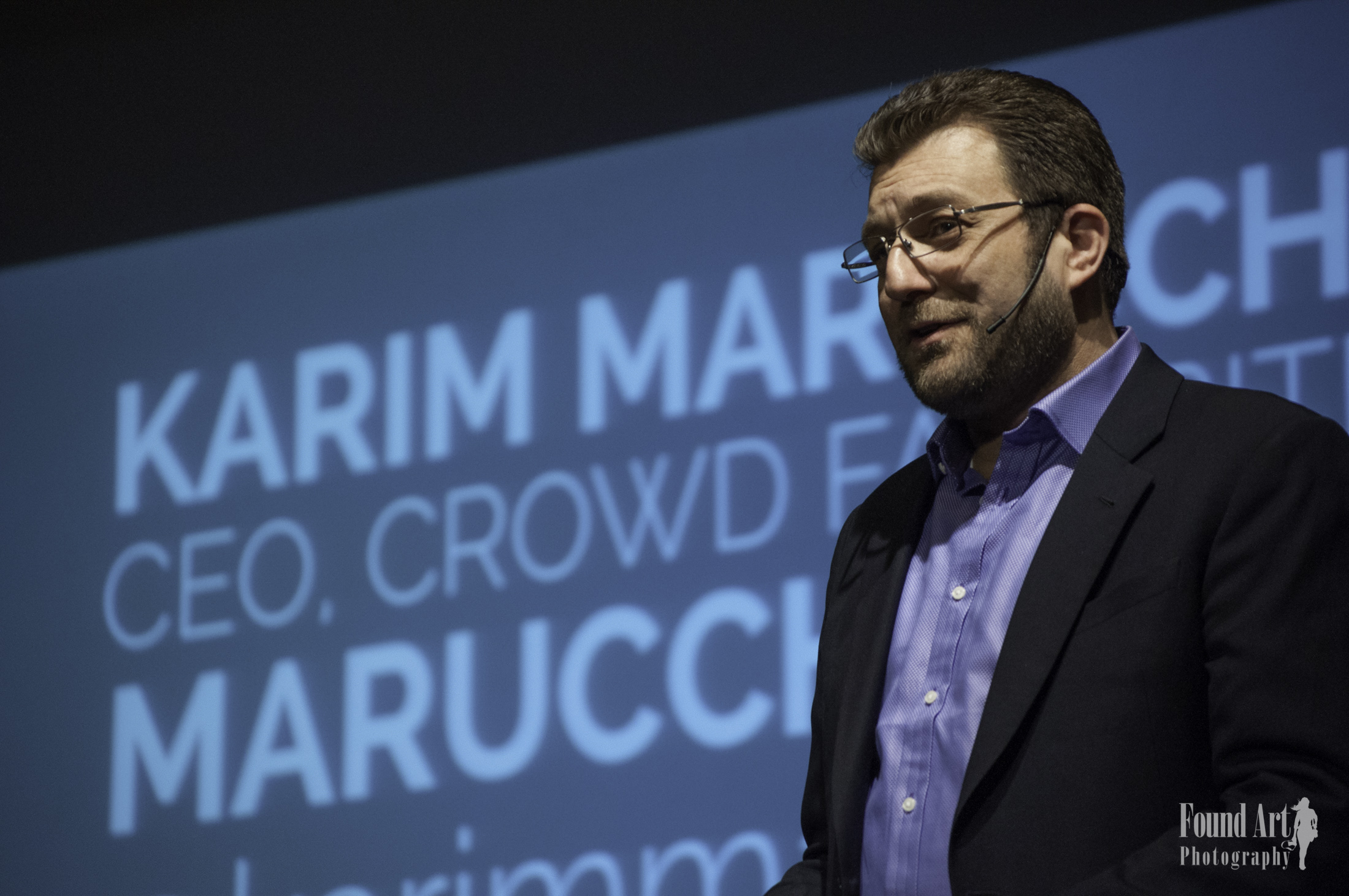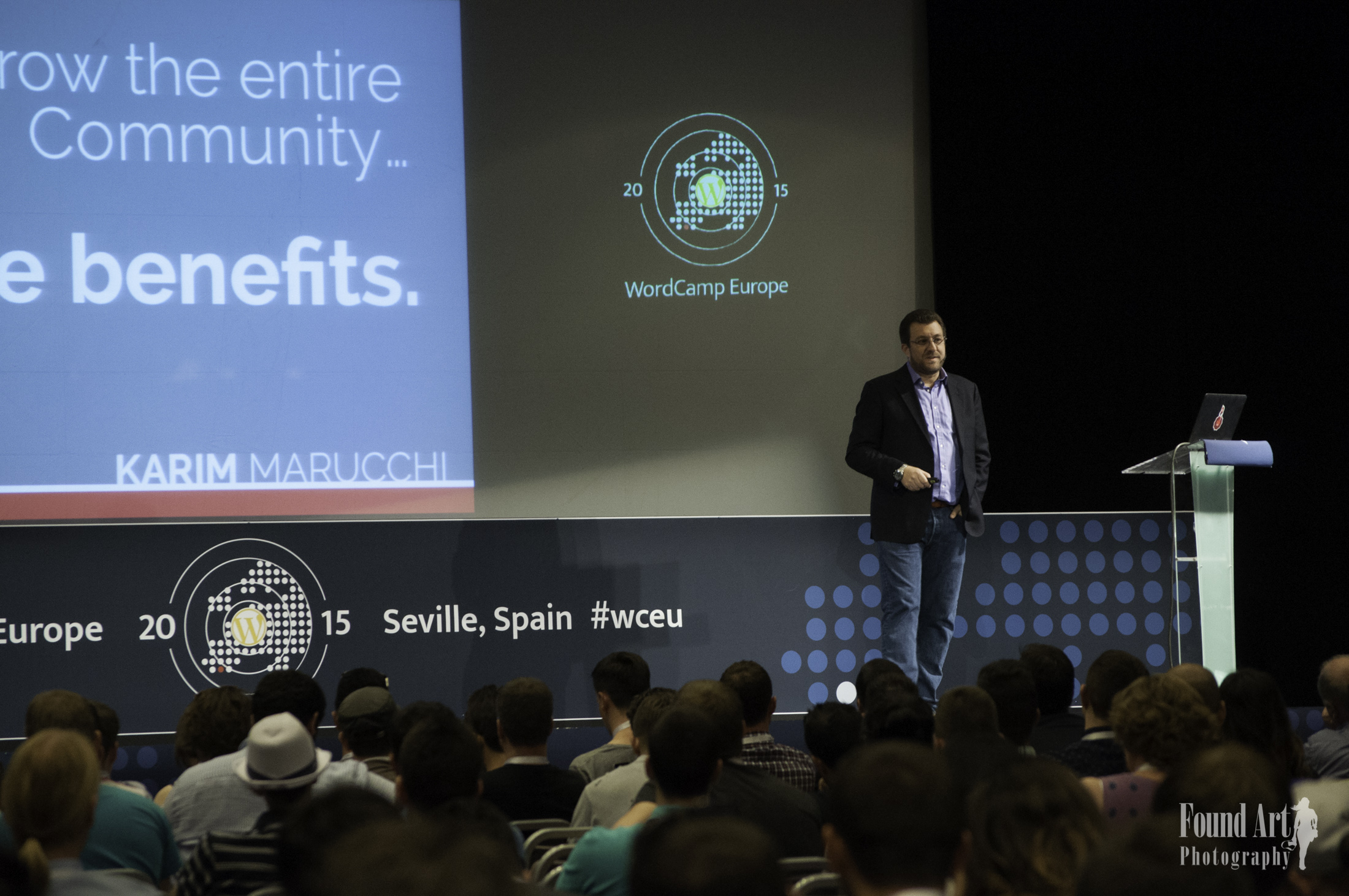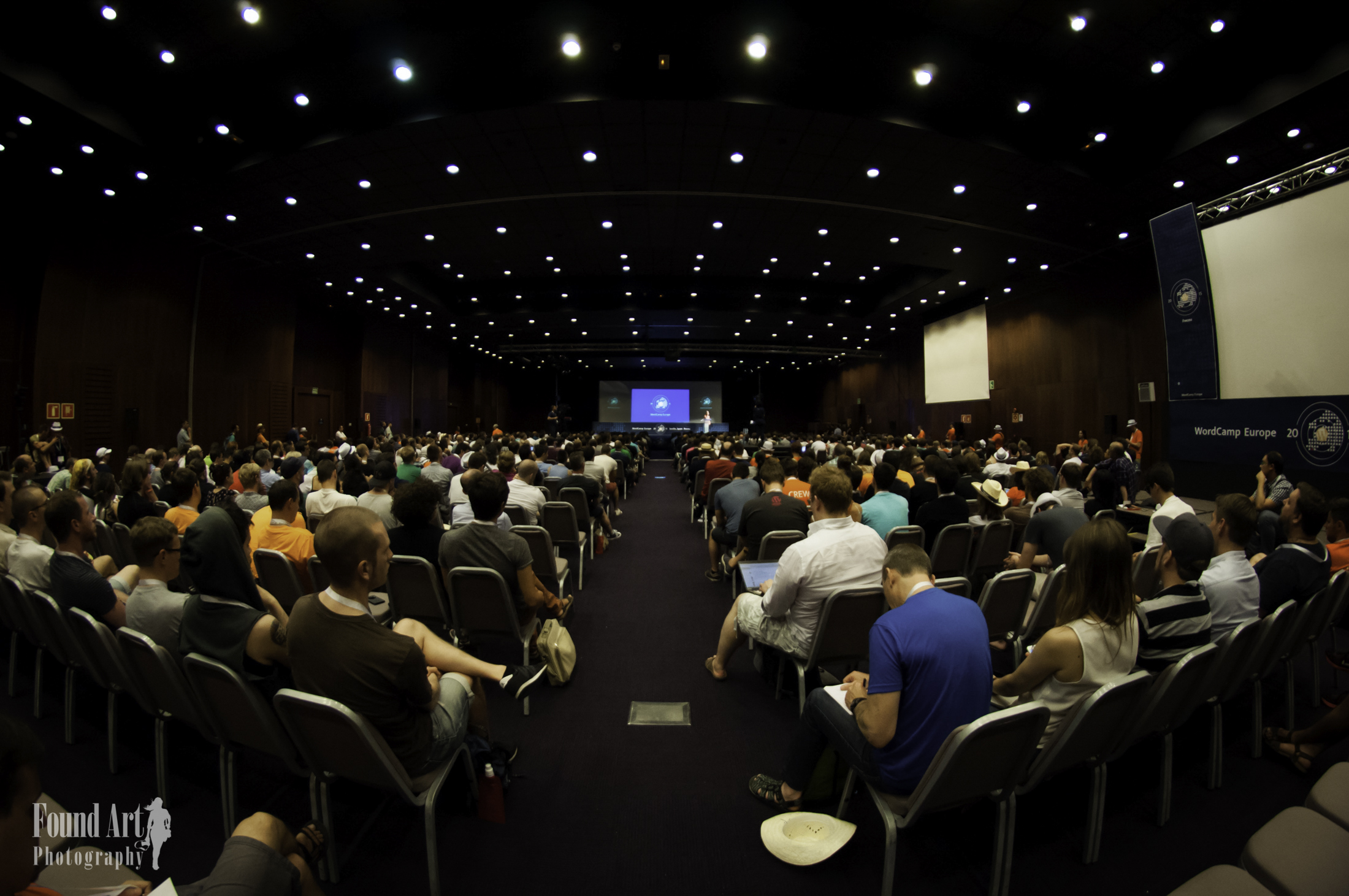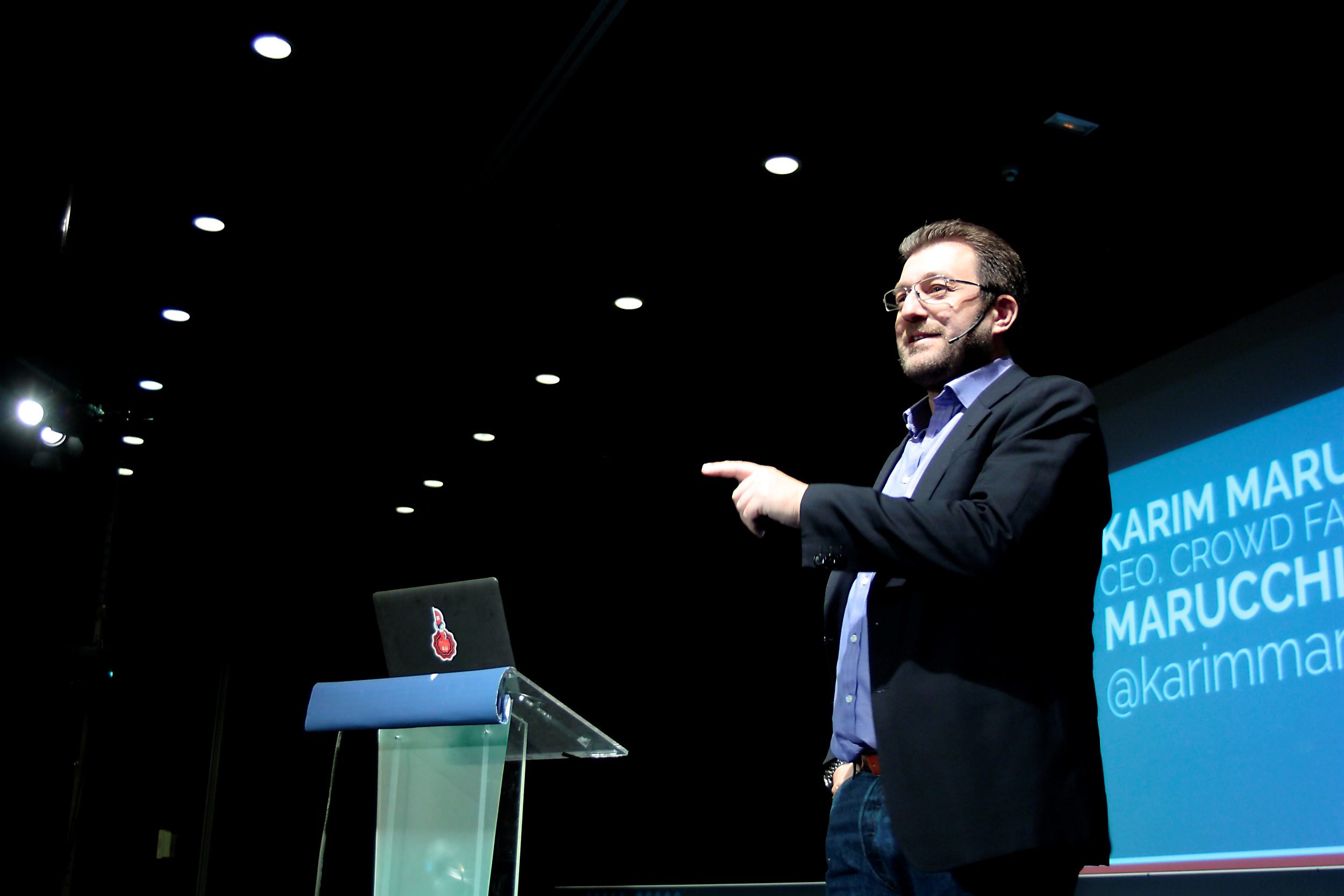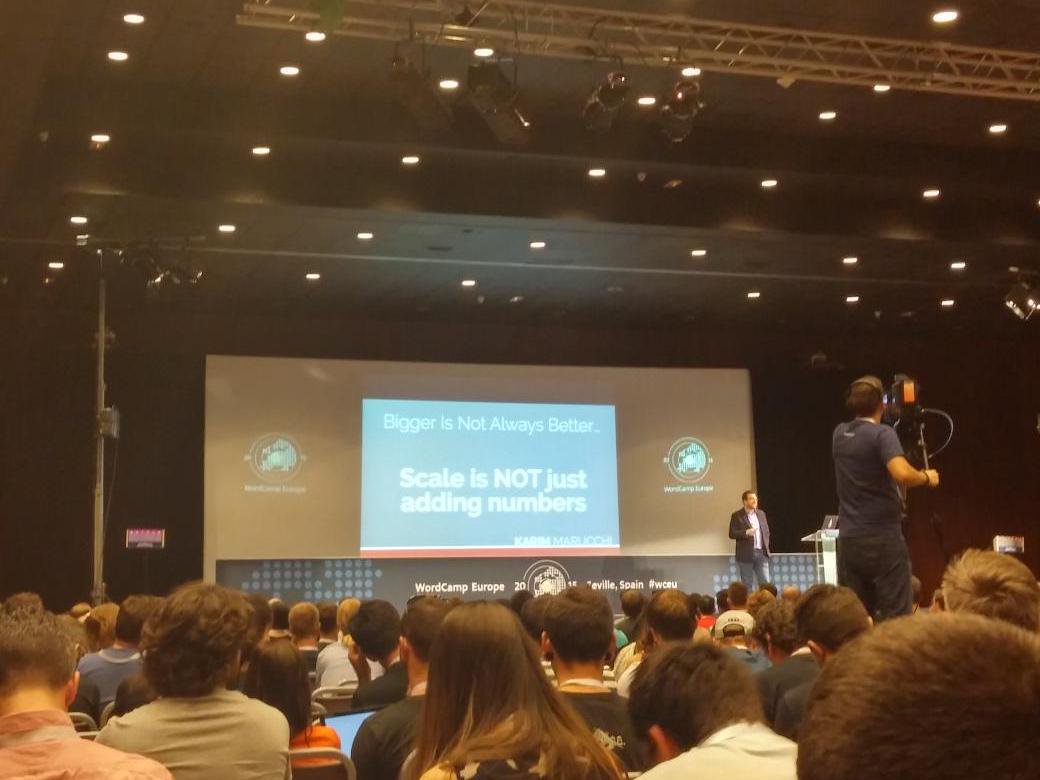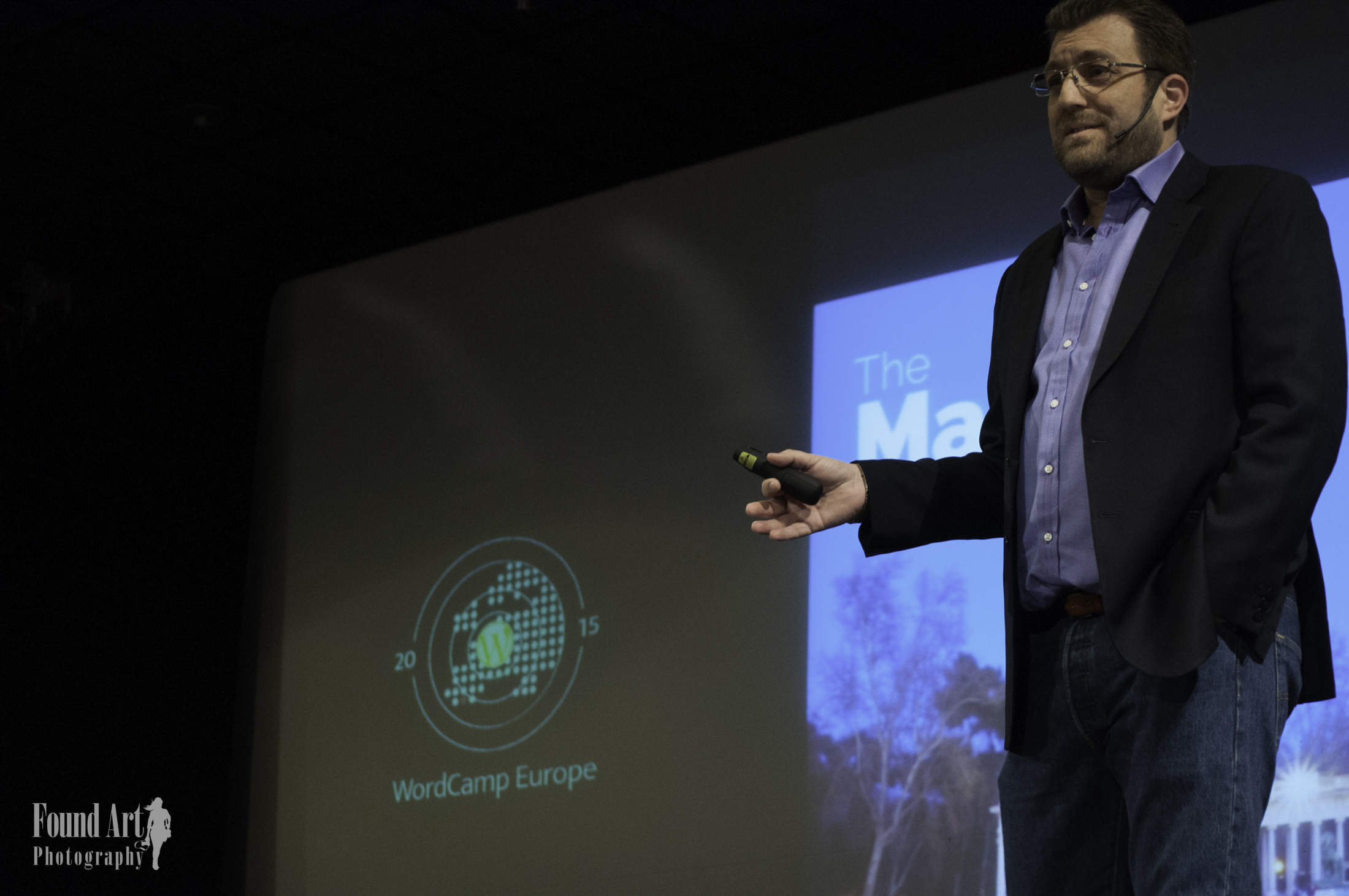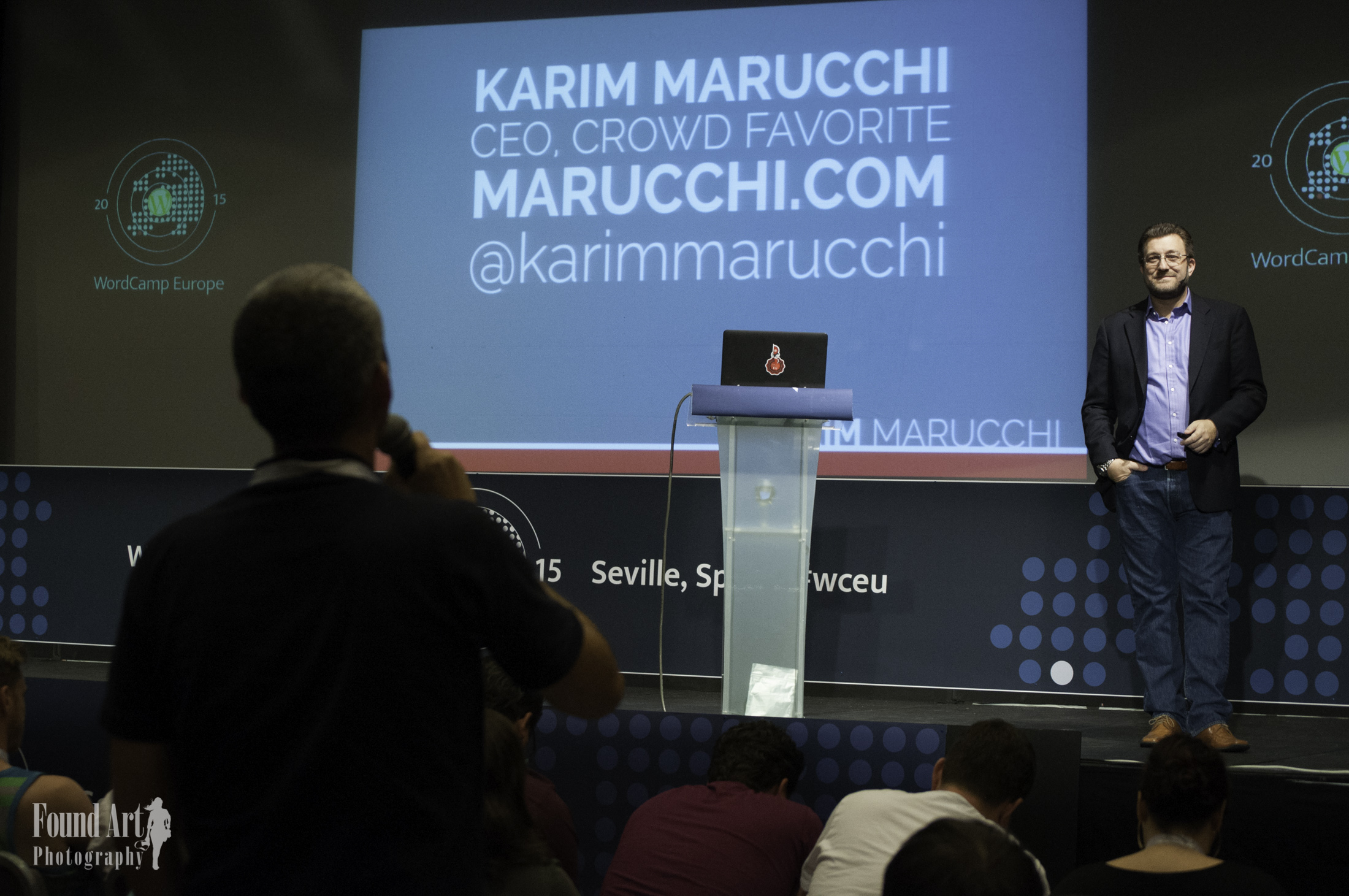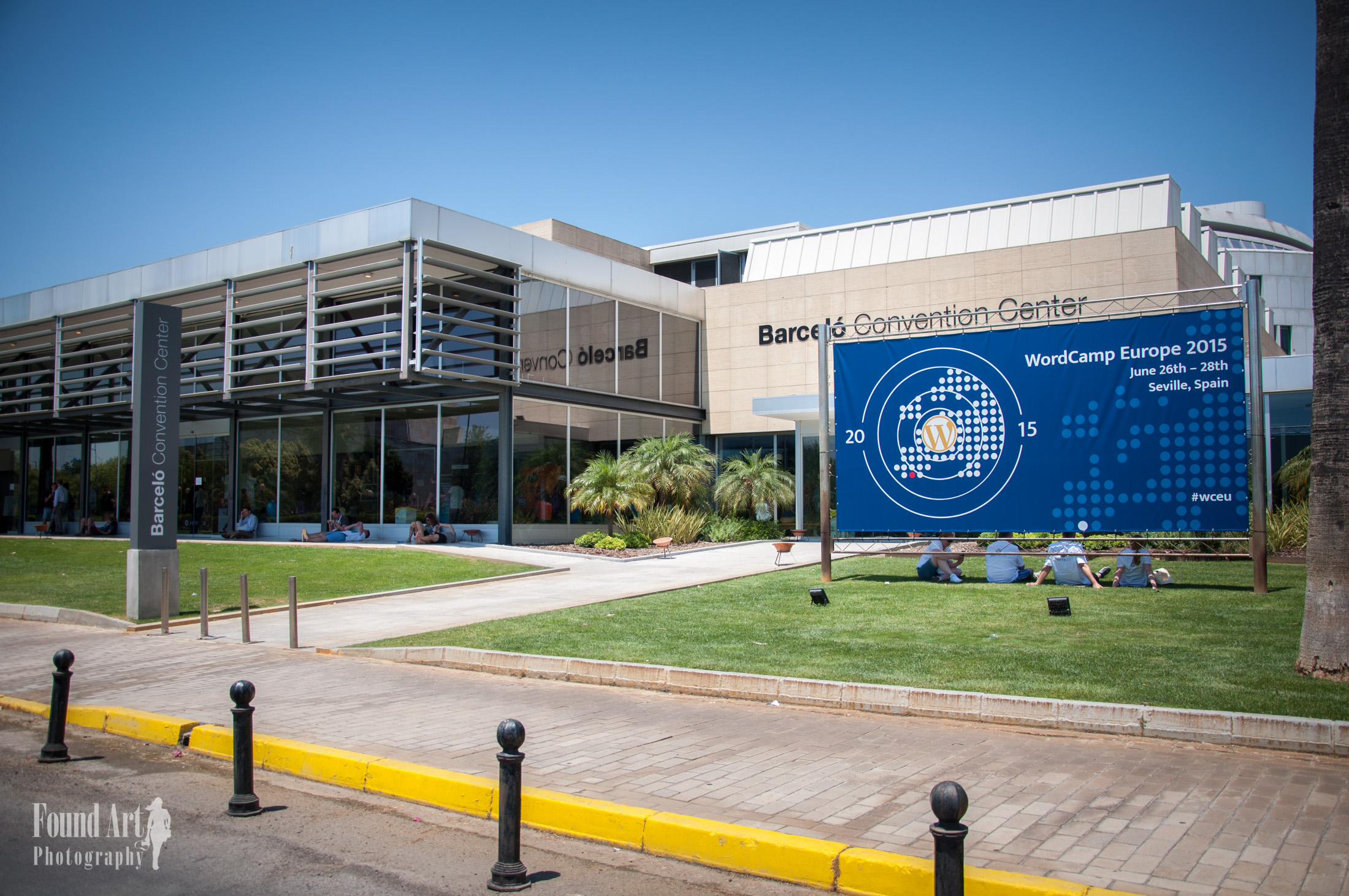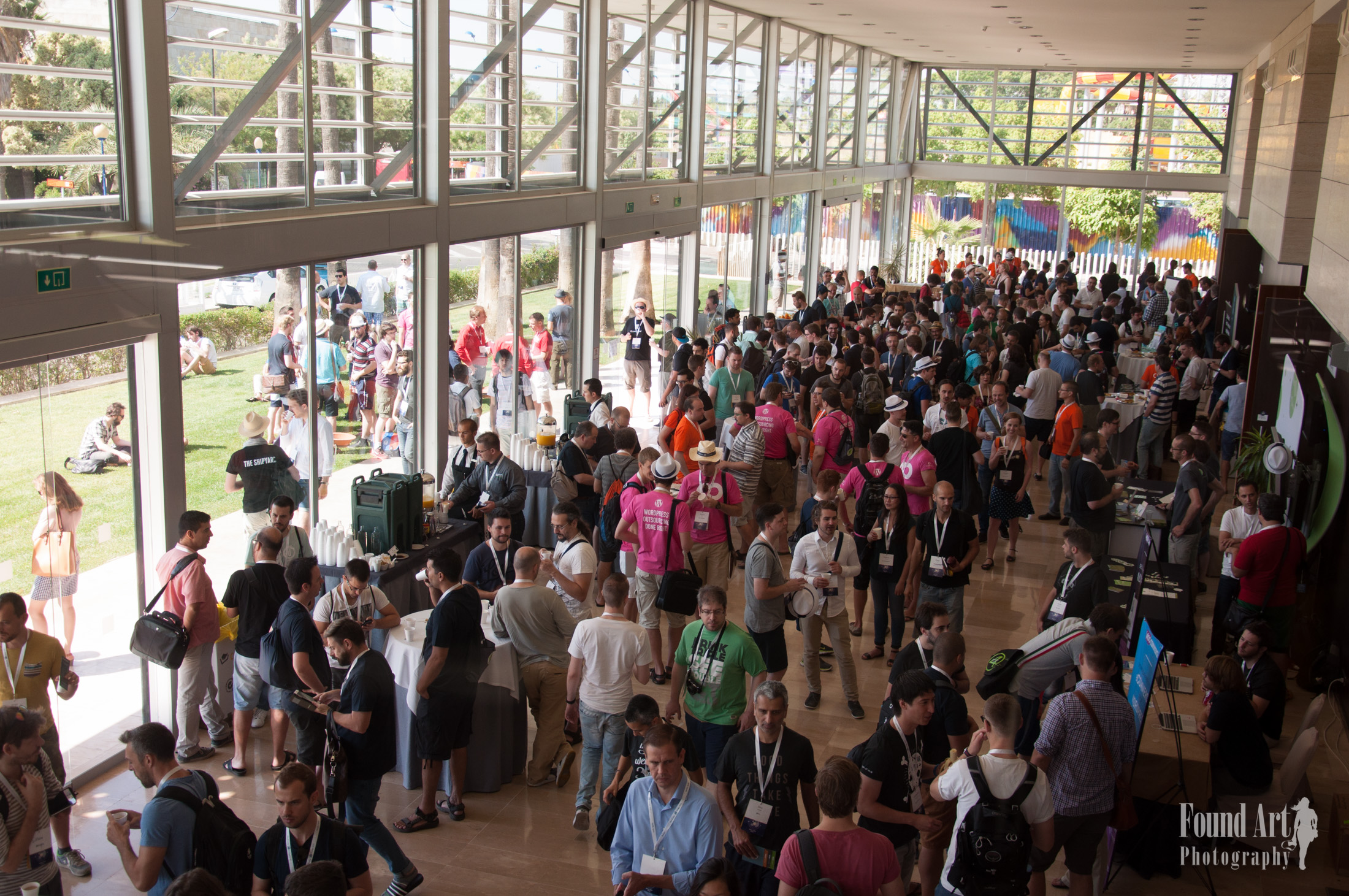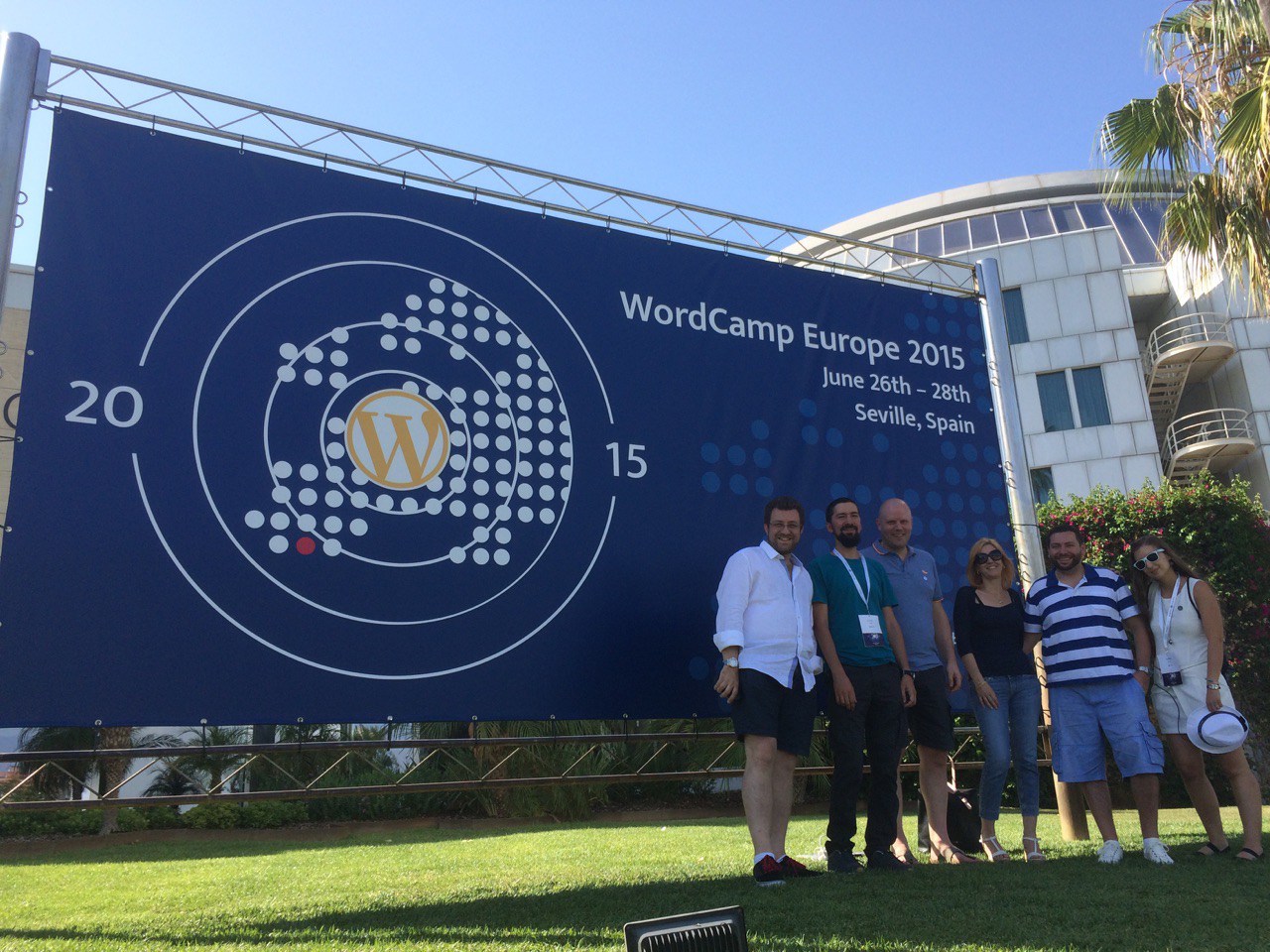Tales of Acquisitive Growth
...And the Lessons Learned
In the world of agency mergers and acquisitions, a lot of wide-ranging advice already exists on valuation from the perspective of the buyer, much of it delivered from the more egocentric angle of "What have *I* built?” So, how do you add value to your company that is NOT dependent on one founder? In my talk for WordCamp Europe, I set out to explain the deep value of partnerships, the importance of which learned firsthand after seeing how many founders were detrimentally single-minded in their business approach.
I’ll be honest – if I wanted to be really straightforward, I could also call this vlog “How I Screwed Over Entrepreneurs.” You see, the idea originally came from a coworker, who dared me to quite literally stand up in front of an audience and explain how I, as part of my job function, was able to screw people out of their own companies. My coworker might have been joking, but I thought the idea was brilliant.
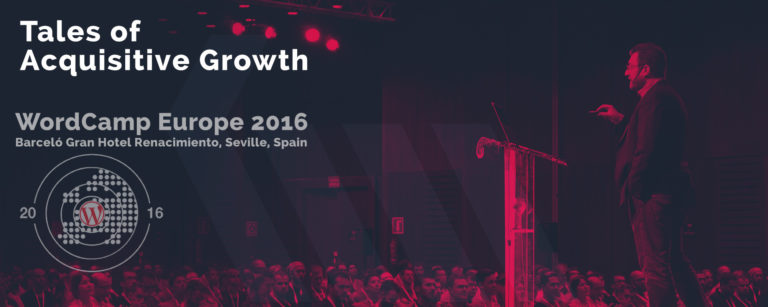
Let Me Tell You A Story…
For the first portion of my talk, I share three real-life scenarios where my actions ultimately caused another business to fail. The companies I discuss, while differing in industry, size and revenue, all had one thing in common. They weren’t after true growth (of the company, of a culture, of a dream). They were hyper-focused on dollar signs, and that was their downfall.
“The Madrid Haircut”
How I cut a company’s asking price by 60% while working with overconfident first-time entrepreneurs in Spain.
“The Los Angeles Cleaning”
How I set up a company to fail, and quickly, after zeroing in on areas where they had no experience. They kicker? I pointed out their areas of inexperience during negotiations, and they still managed to fail!
“The Paris High Jump”
How I ultimately paid a company less than 50% of what I originally intended to offer, because they neglected to take an in-depth look at their business before jumping into a deal.
The more successful the #WordPress community becomes, the more you'll benefit. Do you part to be open, to work with others and contribute.
– Karim Marucchi
So, How Does Your Story End?
In the talk’s second portion, I discuss how the WordPress community transformed the way I approach and think about business. I offer examples where the open, collaborative approach of WordPress is a beautiful thing, and how can stop looking at the people around you as competition to have the time and energy to focus on the things that really matter – your passion, people and lots of preparation. Oftentimes in business, success for the group equals success for all. By learning from the WordPress community structure, we can avoid the mistakes of the past and create a prosperous future not only for our businesses, but for our industries.
Takeaways from my Talk at WordCamp Europe 2015
- Everyone thinks they’re worth a lot. It’s part of the entrepreneur DNA to value themselves and their company greatly. Instead of thinking you’re the best thing to ever grace the industry, have a piece of humble pie. Failure is practically guaranteed when people think too highly of themselves or undervalue their opposition.
- Get talking! Start an honest conversation with companies that are doing the same thing you are. If you’re a service company, talk to a product company, and vice versa. Use your knowledge to partner, share and collaborate – not to compete.
- The more successful the WordPress community becomes, the more you’ll benefit. Do your part to be open, work with others and contribute. I’ll go back to the pie analogy: When you grow the entire pie, your slice gets bigger. There’s enough to go around for everyone.
- Scale extends far beyond headcount and total revenue.Those are just numbers. Important numbers, but numbers nonetheless. Rather than start a mad dash for that extra sale or more employees or bigger clients, start thinking now to create a plan well in advance that accounts for the long term.
Photos From The Talk
Video Transcription
| Karim: | Hello, everybody. It is a pleasure to be here. Thank you to the organizing team for inviting me to come speak. For those of you who know me, well, I have this accent. [Foreign language 00:00:17]. There's a bridge between the United States and Europe, and that's why I'm very proud to speak here at WordCamp Europe. |
| Today, we're all thinking of what's going to happen next in WordPress. Where is it going? Well, where is it going to happen? What is going to happen when it grows up? In the late '90s, in the early 2000's, the internet itself felt much like the WordPress community today. Nobody was exactly sure. We just saw a lot of opportunity, and we are having trouble keeping up with what that opportunity look like. | |
| As we see WordPress mature today, what's going to happen naturally is people are going to start working together. People are going to have partnerships. My hope is that we can learn from some of the mistakes of the past and that we can use what is the WordPress ethos to avoid some pretty serious mistakes. | |
| Madrid. A lot of people talk about how time is fluid in Spain. I love that about Spain, but in the digital space, people work very, very hard. I found a company in the late '90s that had hockey stick growth. Huge revenue. Over night, they had more revenue than they thought they could ever get to. First-time entrepreneurs. They felt like they could ask for a lot of money, more money that was reasonable. Even they did some research, and they said, "You know what? We're worth it. We want more." | |
| My job was to come in and say, "Yes. Don't worry about it, just yes. Whatever amount of money you want, yes. Now, let's sign the letter of intent. Let's do our press release. Let's get this going. Over the next few months, we'll do some investigation and see what's going on. Let's talk about after we get that press release. We'll talk about how you got that growth, how you got that revenue." | |
| As we started their contracts, I found 18 different ways to tell them that their revenue wasn't worth what they said it was. In one instance, I told them that their client wasn't paying fast enough. In another instance, I was very ingenious in finding a way to explain that that other contract probably doesn't have a lot of life. That end-client isn't going to be doing something. | |
| Over time, while we're doing our due diligence, I found a way to cut 60% of what their asking price was. By that time, their other suitors had disappeared. We killed it. We got that for exactly the price we wanted to and 60% less than what they were asking. | |
| Los Angeles. Los Angeles is a very laid-back lifestyle. Everybody feels like they're just sitting by the beach waiting for things to come. We found a company that literally accidentally fell into a new market. We wanted their brand. We wanted their clients, their contracts, but as we talked to the founding team, as we talked to the team members they brought on, it was very clear that what they wanted to do and what we wanted to do with their brand and their contracts wasn't the same thing. | |
| It was my job to negotiate it. I looked for areas where that particular founding team had no experience. I went, and I looked, and I talked to them about it. I said, "Do you have experience in this? Do you have experience in that?" They said, "No, but we're really eager. We're here to build this business. We can do this." We negotiated a contract that gave them new responsibilities after we close the deal. Over a short period of time, we set them up for failure. I was paid to make something work for my company, not for the deal. I was paid specifically to look for the target of what we were looking for, the price alone. | |
| Paris. Paris is known as the city of lights, fashion, finding the cutting-edge in all trends. There, we found a company who, following that same way, had found a vertical that we felt we could jumpstart. This large conglomerate I worked for was a giant media company that had more money than they know what to do with they could throw it around. | |
| They had a solid start, but their founders were convinced they were going to see triple-digit growth year over year continuously, so they came, and again, they asked for a ridiculous amount of money, and they asked for ridiculous terms. We said, "All right. Even though you want something completely unreasonable, I'm going to give you exactly what you're looking for. You're asking for this much. If you hit your goals, we're going to give you double what you asked for. If you hit your goals, you're going to tell me." | |
| Every story comes with two sides to each coin, so I said, "Guess what? If you hit this other number, the number that I think is more reasonable, you're going to take a little bit of a cut on the deal. We're going to give you a little bit less," and they were like, "No problem. We're going to get there. We know we're going to get there. We're convinced." | |
| Well, they came closer to the numbers we thought than they thought. We were able to pay less than 50% than we were originally going to offer just by taking advantage of the fact that they weren't really willing to actually go in and look at their business in depth before they did a deal. | |
| You see, I don't care how much people tell me they're prepared. I don't care how much people tell me that they've done research, that you know your particular niche, that you know your particular area of expertise. We all make assumptions. In my business, I make assumptions every day, and those assumptions are made based on my own bias, and my own bias is a collection of my experiences and what I've gone through in life, whether negative or positive. | |
| I've just told you three stories of where it was my job to screw over entrepreneurs. It's still like that out there in a lot of different companies and a lot of different industries. You see, one thing you have to keep in mind is that growth. Did they want growth? No. People I worked for didn't want growth of the company. They didn't want growth of the culture. They didn't want growth of the dream of working on a cool product or working on a cool service. They were looking at one thing only, financials, and that's where the basis of most acquisitive growth comes out of is financials. | |
| I could tell you over 40 other stories just like these, but that's not why we're here. In 2007, I literally accidentally fell into the WordPress community. I was used to closed source. I was used to licensed products. I was used to giving client services through very different way of doing things than we do them today. | |
| I had seen other open-source projects as a businessman first and somebody who played with code second, but they seem like almost the Wild West like what the internet was before. Instead of having a community, they seem like they had a hierarchy of people that you had to talk to to get in. | |
| I was actually struck immediately by the fact that I literally was able to get online and just start talking to people, and they talked back. I don't think Ryan Heller is here, but I reached out to Ryan Heller and just started asking him some questions about core online, and he just started answering me. Over the course of two or three weeks, we spent hours chatting just about core. I wasn't paying him. He had no idea that he could ever sell anything to me. We just talked about it. | |
| The concept of that community makes this space different. The concept has been proven by how WordPress today is taking off. What we're doing with the 24% of the web, what we're doing in the CMS space, how it's being used. Yes, as a community, we still have some growing up to do, but I can tell you from experience. If you come in with humility, if you come in with empathy, and you just start talking to anybody here, whether you're the famous Yoast, you're the famous Remkus, any of the people around here, even Matt, he'll just ... You walk up to him, he'll just start talking to you. That doesn't happen outside of this community. It's special. | |
| Immediately, I saw that this wasn't a space to try those old habits. Immediately, I saw if I try those things, I could get away with it once. I could get away with it maybe twice, but that's not what I wanted to do. See, I had also taken money myself from a VC. I had also gone into larger corporations and had myself wash out, and I said, "How I can I do something different? How can I build a future in my particular case?" Some of you all are looking for an exit. In my particular case, I didn't want an artificial exit. I wanted the natural growth of my company, so let's look at growth. | |
| Typically, in stable mature markets, you think of growth as market share growth. How do you get market share growth? In both mature markets and those that don't change necessarily fast, you need to focus on churn. Churn is moving customers from one side to another. For those of you who have two local telecom companies wherever you're living and you see how much they're trying to get you to switch over, that's what they're doing in a mature field. | |
| Vertical depth is made by real innovations. You are forced to outmaneuver your competition. You are forced to label your competition competition. You are also forced to look at acquisitive growth because you need to make your slice of that pie larger, and the overall pie isn't getting larger. The problem is that is a high cost, and that high cost is not financial. That high cost is human capital. That high cost is the lives of the people that as entrepreneurs we employ and that we're looking to help. | |
| As freelancers, if you're saying, "You know what? I've had a great run as a freelancer, but I'm looking to become part of a larger team," you want to join a team that you feel is going to take care of you. Well, this is a space where I've seen some different things, so what is different here? What is the environment that allows this space to be different before we get into the details? | |
| As a WordPress community, we've enjoyed up till now explosive growth. As we mature, it's still changing very fast. Every day, we see new directions that WordPress can go. Here is a place that you can focus on both deep horizontal and vertical ways of growing. You can expand your business and look for more clients, or you can say, "Okay. How do I widen the wallet of my particular client?" That's not everywhere else that you can do that. | |
| When we grow the community, you don't have to any longer perceive the people who are working around you as competition. It deepens the pool for all of us. You see, in the WordPress community, there are still not enough prepared companies to answer our users' and our clients' calls. If one company isn't doing it well, there's somebody right on their heel who's going to do it for them, and if the first company is paying attention, they can turn right around, and come back up, and be competitive. I've worked with some of those companies. There are some incredibly-prepared companies here at this conference also. | |
| Here, you can focus on your passion. You can focus on your people. You can focus on your team, the way you want to grow your company because you don't have, "Well, I need to make another 15% or 20% next month or I'm going to have to fold." Most of the companies I talk to here, whether you're a product company or you're a service company, you can't grow fast enough right now. You're turning away clients. Take advantage of that. You don't need to do M and A to win in this community. You don't need to do mergers and acquisitions. | |
| I am not going to say that there's a magical list out here. I hope to give you something to think about. As developers, I'm going to put it like this. I hope to give you a framework, not actual lines of code on how to approach growth and business. Not a list of how to push up your headcount, not a list of how to target certain financials. Like the WordPress ethos that we've talked about, do the work, and the rest will come. | |
| Get to know the community, go out there, and start talking quite literally. If you're a service company, talk to product companies. If you're a product company, talk to service companies. Talk to companies that are doing the same types of things you're doing and have nothing to do with anything of the "sector" of WordPress that you're dealing with at the moment, but when you talk to them, ask them what their challenges are. Ask them what their problems are. Ask them what ... If tomorrow morning, you could solve a problem for them, what would it be? | |
| In return, be honest with them. I don't think I've seen one instance in the last four years that I've been running this service company that I've seen a competitor take advantage of another competitor when somebody was honest about their weakness. That's different in this community. That's worthwhile. | |
| Let's face it. If every single person in here was good at everything they did, you guys wouldn't be here. You'd be down at the beach sipping very expensive cocktails, and I'd be talking to an empty room. We can't all be good at everything. Partner, don't compete for every euro. | |
| The WordPress community is a group of truly dedicated people. The idea here is of sharing, sharing thought, sharing code. Share the business. In the audience right here, there's a firm from Arizona that I actually work with quite a bit, and I try to pass them work when we can, and I know they ... I think you guys talk very well about us. There's more work that can go around. We share some of the same clients sometimes. | |
| My friend, Chris Lema, says, "Hope is not a strategy." I don't know if you guys have heard that. "Hope is not a strategy." He says it a lot. He's absolutely right. Hope is not a strategy, but guess what? Neither is sales. Sales are financial. Sales are a tactic, a means to an end. Your strategy is your plan, and if you can come up with a plan that looks at your strengths, but more importantly, your weaknesses, and then you can identify people in this audience and in this community who can help you with your weaknesses who have strengths that you don't have, it's not a question of them taking money out of your pocket. The entire pie will grow. Whether you're talking about physically attacking one opportunity or two opportunities, or you want to say, "I want to be in two physical locations at once by partnering," you will be able to do that. | |
| Ask them. Ask yourself. When you start that conversation, say, "How can I help you as I said earlier? How can I bring you a client? What kind of client are you looking for?" That way, when you go back and you talk to your customer if you're a product company or your talk to your client if you're a service company and you hear a keyword that reminds you of a product that's out here, another service company, you can say, "Hey, I have an idea. Why don't you call them?" | |
| Every single time I've done that in this community, I've gotten it paid back three-fold. Everybody needs to keep doing that. Give that possible partner a reason to invest back into you. Negotiate for people's needs first, not just that with those financials. | |
| A last thought. Scale is not about headcount or total revenue. As I talk to a lot of companies here in the WordPress space, the first thing they ask me about Crowd Favorite is, "How big are you now? How big is your headcount? What's your total revenue?" That doesn't denote scale, people. That denotes cost. Headcount and revenue should be important parts. They should be important numbers, but it's not your plan. | |
| Start thinking about your scale. Start planning that ahead of time. Create a plan first. Think for a minute because just adding people or just making an extra sale is not cumulative. You will create yourself more problems than solutions, so plan for that. There's a lot of us here in the community who actively volunteer or consult without companies to help them. Seek those people out. | |
| My name is Karim Marucchi. I'm the CEO of Crowd Favorite. I blog sometimes at marucchi.com. You can find me on Twitter, @karimmarucchi. Thank you very much. | |
| Noel: | Great talk. Questions for Karim. Definitely, a bit of a special topic. A bit of controversy there. I like it. |
| Noel: | Hugo? |
| Hugo: | Are you still killing entrepreneurs like in the old days or your role is different now? Basically and most importantly, what changed in your approach or strategy since you're in the WordPress community and leaving all of this as you told us? |
| Karim: | Okay. Am I still killing entrepreneurs? I think there's a couple of people here in the audience who would stand up and yell bullshit if I was trying to do that at the moment. I think I have a good track record with both Alex King and James Archer from Forty. We've partnered with lots of companies, and not all of them we've acquired. There's companies in the US that we literally partnered with and swapped clients back and forth and services back and forth where we make less money because we do that, but I can tell you something. Cost of sales is huge, and by giving 10 euros, giving it to somebody else, usually, I'll get more than 10 euros back in a sales reference from them because I will do something different that they don't do. |
| Our company specializes one day and they don't. I was very general in this talk on purpose to not people say, well, I do or don't do that, but if you're good at project management, do that. Look for good developers. If you're good developers, look for that. It depends on what you're doing, right? | |
| Hugo: | What changed in the way you work [inaudible 00:21:19]? |
| Karim: | I've actually started quite a few companies myself before I went to M and A, and I was burned. I was burned by all those types of stories that I gave, and I said, "I want to create something that can last." Typically, technology moves so fast. Either products or services have a bell curve of growth, and the really lucky ones get out of the top of the bell curve and then come down. |
| There's a few examples of some great technology companies that have stayed around for literally 40 years and longer, and usually, those companies are doing things slightly differently, so I said, "Okay. Let's not look at financials. Let's look at creating what's called a friendly acquisition. Let's look at what's called working together." | |
| If I understand what the goals are of Remkus and Don, and how they want to develop their business, and I can help that, then they can help me. If I'm trying to find a way just to make a few more dollars, it's not actually going to do something that's actually going to be long-term. It's just going to be a quick bell curve. Thank you. | |
| Noel: | Any other questions for Karim? |
| Karim: | No? |
| Noel: | While we wait, I have a question actually. |
| Karim: | Sure. |
| Noel: | Before we heard the journey of WooThemes and it was a lot about moving outside of the WordPress community and trying to get a feeling for what's out there, going to the other conferences. |
| Karim: | Mm-hmm (affirmative). |
| Noel: | What we're talking about here is being more insular, and staying within our community, and capital-wise, on open-source goodness. |
| Karim: | Right. |
| Noel: | Good relationships and all that, but how does that affect us in real-life when we have relationships elsewhere, and I guess we need to be risk-averse to a degree, and look out elsewhere? |
| Karim: | Thank you for asking. I don't mean by any means to say let's be insular. Let's be inside the WordPress community. I'm saying let's use the ethos that we've learned through contributing to core, through contributing to WordPress to take that to the business level. Do that in your business practice as not just in your code practices, so do that outside of WordPress. Our company does work on open-source projects outside of WordPress as well, and we try to do what's been the best thing about the WordPress community within those projects as well. |
| Noel: | Yeah, that makes perfect sense. We have a question right over here. |
| Audience Member: | Thank you very much. Very interesting. I'd love to get your opinion on some upcoming trends, industries that you specifically have your eye on that are interesting from an evolution perspective that are revolving. Industries that you guys are looking at that you think should be broken into that are lacking in technology. We all know hospitality and we all know charities, so there are various industries that are lacking in technology. Is there anything that from Crowd Favorite's perspective you're specifically looking at? |
| Karim: | We do have a few verticals that we naturally sell to, but much more specifically, what we've been targeting is actually a type of client with a certain structure. The way we're structured as a company, we have a lot of support, a lot of non-billable support for our projects that other companies don't have, and that's a reflection of what our clients are looking for. |
| Our clients are looking for a process that is more complex and deeper than a lot of development shops will do that are just doing pure code, so for us, it's about creating larger and diverse, more diverse teams as a reflection of what our clients are asking for. Not necessarily as a growth opportunity, and we feel that's what we do best and that's what we target on. | |
| What that means is we help anybody from entertainment to automotive manufacturing, and it works out, but it doesn't work out for a certain type of medium business that wants to move at a certain faster speed. For that, we literally have partners here in this community that we refer work to. Yes, sir? | |
| Gonzalo: | Hi there. My name is Gonzalo. I come from Portugal. I have one question for you. What's your main lead generator nowadays for Crowd Favorite? |
| Karim: | Lead? |
| Gonzalo: | The lead generator. What sites? Is this word of mouth, something like that, or what's your main lead generator nowadays? |
| Karim: | Nowadays, we're lucky enough that we're very well-known in the very thin base of clients that we need to be, so we have a lot of incoming work, and we have a lot of strategic outreach we do to a small target of clients, but because our target clients are very small, I can literally count them in a very small simple spreadsheet, so our outgoing lead gen isn't what it would be for some other types of companies who have to do a much larger shotgun approach, so we're literally able to meet them by physically calling them up, and going to events, and actually being there. For us, it's a little bit of a different animal. |
| Gonzalo: | Okay. |
| Karim: | When Crowd Favorite was smaller, VeloMedia was smaller, Forty was smaller, what would end up happening is they would do just general lead gen as a lot of companies do. We've actually gone away from that now, and things just come to us because of what we specialize in. |
| Gonzalo: | Do you have an opinion on why do agencies, WordPress agencies don't have so good a pitch for large-scale enterprises? We work a lot ... We work mainly with large-scale enterprises, and we want to share our experience in Portugal and so forth, and we are going to do it, but what's your opinion? I have one, but tell me yours. |
| Karim: | Matt was up here yesterday talking about Acquia and the differences thereof. One thing in my personal experience is the WordPress community still doesn't have a non-biased third-party that is funding Gartner reports, that is funding ways of publishing information about WordPress that it's not us trying to sell it. |
| There are few of us companies that are trying to fix that and solve that, but one of the chaotic great things about the WordPress space is we're not one giant company. There is no Acquia, and that's a good thing, so literally, we have to decide to come together and do these things as a project just like if you want to move menus from X to Y. We have to decide to do this as a community. It has to be important for enough people. | |
| I'm ecstatic to hear that in Portugal, you're doing enterprise-sized projects because three, four years ago in the United States, we felt like we were running around all by ourselves going, "WordPress can be done in the enterprise," and people are saying, "No, no. It's just a blog." Today, we don't have to fight as much because we have case studies in the United States. | |
| As I've traveled around Europe, I've seen that the European companies, their main excuse is, "Well, that works in the United States, but that will never work here." I'm sorry. Is PHP different here than it is in the States? Did I miss something? Anyway, the idea is we just have to get through some of those breakthrough clients. | |
| Matt was up on stage and talked about Showcase on WordPress.org. I'd also like to see something where we can actually show something that's specifically enterprise-grade to clients that's a collaboration between service firms and product firms. | |
| Noel: | Great. Just before we thank ... |
| Karim: | Sorry. |
| Noel: | No, no worries. It's a great answer. Just before we wrap up and thank Karim, we will have closing remarks at 6:00 exactly, so in just less than 10 minutes, and there will be a very exciting announcement, so please don't miss out, so be here. Thank you, Karim. |
| Karim: | Thank you, everybody. Cheers. Thank you. |
